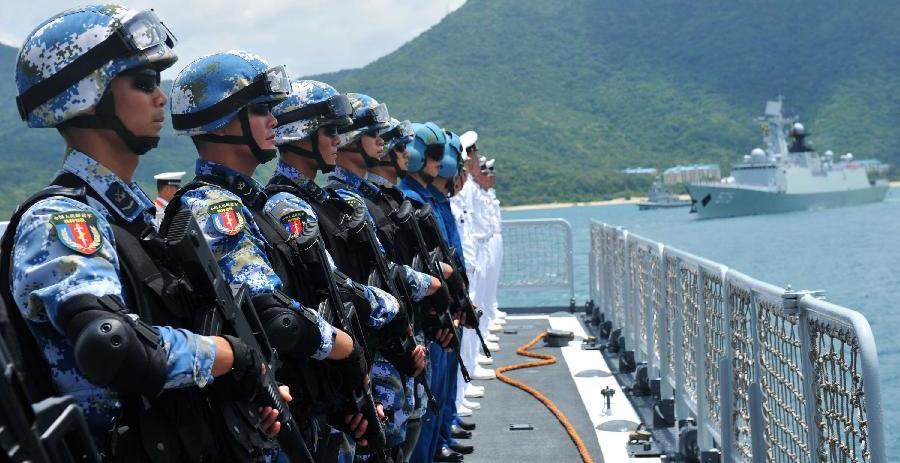
American allies and partners in the Pacific don’t Washington or Beijing, “to do anything stupid” that would lead to war after the Trump administration takes office in January, retired Rear Adm. Mike McDevitt, USN, said Tuesday.
The allies and partners “don’t want to have to choose” sides in such a dispute. They want the United States to be “an over-the-horizon force” to counter China militarily. At the same time, they recognize their dependence on China economically, the senior fellow at CNA said during a debate at the Center for Strategic and International Studies on Tuesday.
Retired Adm. Dennis Blair and former director of National Intelligence, said, “We talk to [allies and partners] ahead of time” before negotiating with China over important security questions so “they know this is not a selling out of the American guarantee.”
The proposition McDevitt and Blair debated was: “China can defend its sovereignty and maritime interests while tolerating U.S. military presence in Asia.“ The views they presented during the debate and question period represented their given position on the proposition, not necessarily their personal opinions, both participants noted.
The security relationship [between China and the United States] did not loom large in the recent presidential campaign, Blair said. Telling the audience at the Washington think tank discussion, “that’s been a good thing.” The campaign issue with China centered on trade. Security and trade “could continue to be compartmented” when Donald Trump takes the presidential oath of office.
McDevitt noted that on the future of Taiwan “the Republican Party has been traditionally stronger” in its support of the island than the Democrats in answering another question. “The atmosphere between Beijing and Washington” will likely become “much more difficult that it is today” on Taiwan and other issues.
As to whether the United States would come to Taipei’s defense, Blair said, it “would depend on how” the crisis started. Was it Chinese adventurism or Taiwan’s actively seeking “de jure” independence from the mainland?
Unlike 1996 when the Navy sent two aircraft carrier battle groups into into the Taiwan Striar undetected, McDevitt said now the amount of risk the United States would have to absorb would be much higher.
“Today China would know where the carriers are all the time” and Beijing with its military buildup of land, air and naval forces over the past 20 years “has foreclosed” on an independent Taiwan without its consent.
With its moves in the Yellow, East and South China Seas, Beijing “has the ability to credibly defend itself from an attack from the sea.” McDevitt said one way of looking at the Pentagon’s Third Offset Strategy is in a conventional war in the Pacific the United States “would have to fight to gain sea control” and “fight to maintain sea control.”
Today, “China is playing the home game.”
Blair, in his role, said it was important to view the United States’ military presence in the Pacific through Beijing’s eyes. From that view, both the government and people see that “China is a peaceful country” with “no plans to attack the United States.” Yet the United States military plans include combat with China. “It made no sense” to the Chinese that there was no change in the American force structure in the region when the Cold War ended. In fact, the American military presence has grown in recent years, he said.
They also consider naval transits close to its claimed territory and flights of bombers capable of carrying nuclear weapons near those land features provocative and reminiscent of threats that the United States made in earlier crises over Taiwan decades earlier.
He added in the Chinese view the United States is no longer “a cork in the Japanese bottle” in Tokyo’s claims in the Senkaku Islands in the East China Sea and has been encouraging the Philippines, Vietnam and Malaysia in territorial disputes with Beijing in the South China Sea.
The view of the government and people is: “China has a right to be acknowledged as the most powerful nation in the region,” Blair said.





